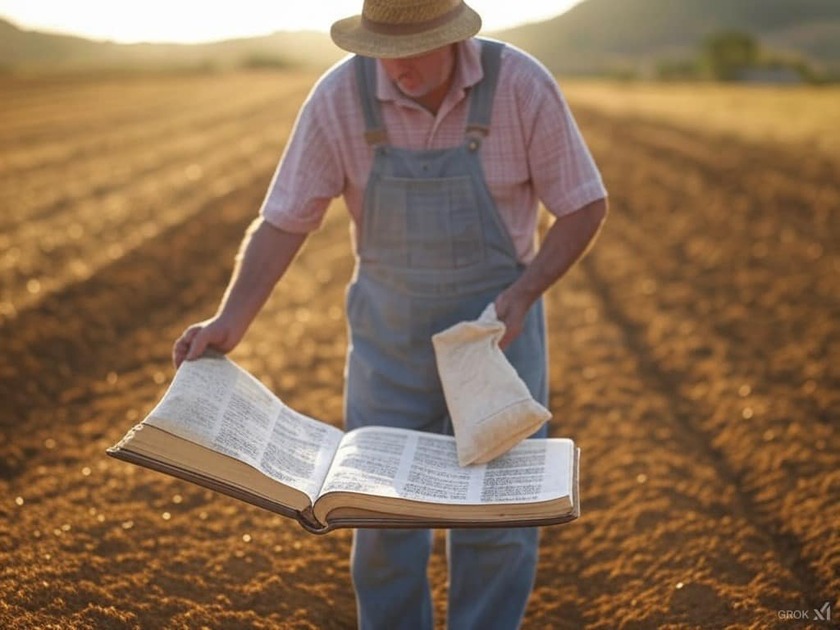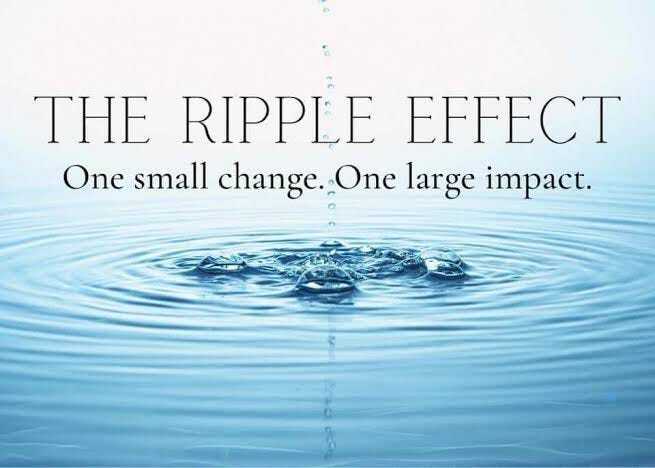It's a challenge and an invitation
Luke 7:37-38
"And behold, a woman of the city, who was a sinner, when she learned that he was reclining at table in the Pharisee's house, brought an alabaster flask of ointment, and standing behind him at his feet, weeping, she began to wet his feet with her tears and wiped them with the hair of her head and kissed his feet and anointed them with the ointment."
It's a poignant moment where a woman, identified as a sinner, approaches Jesus while he is dining at Simon the Pharisee’s house. Her actions, bringing an expensive alabaster flask of ointment, weeping, washing his feet with her tears, wiping them with her hair, kissing them, and anointing them, all these outward signs of devotion show a deep mix of repentance, and humility. And I suppose that's the point of this gospel story. Jesus is welcoming, approachable, and not at all discriminatory towards people who are broken in spirit, mind, and body. It’s a striking scene, rich with emotion and symbolism, and it is often interpreted as an act of love and gratitude toward Jesus.
This story about her great love for Christ, because of his extraordinary grace, contrasts with the rude and judgmental attitude of the Pharisee who represents the religion orders that governed their society. This story highlights Jesus’ openness and compassion, especially toward those who society often shuns—like this woman, whose people labeled as a sinner. In our common modern language today, these sinful people are "cancellable". Today the Pharisees might’ve have seen her as someone they should Dox. She needs to be exposed for her crimes against the religious community and she should be removed.
Jesus doesn’t flinch; he accepts her gesture and even defends her when others criticize. He exposes their hypocrisy by telling them a parable and then he says what I believe is the most powerfully important thing.
Luke 7:44
Then turning toward the woman he said to Simon, "Do you see this woman? I entered your house; you gave me no water for my feet, but she has wet my feet with her tears and wiped them with her hair. You gave me no kiss, but from the time I came in she has not ceased to kiss my feet. You did not anoint my head with oil, but she has anointed my feet with ointment. Therefore, I tell you, her sins, which are many, are forgiven—for she loved much. But he who is forgiven little, loves little." And he said to her, "Your sins are forgiven." Then those who were at table with him began to say among themselves, “Who is this, who even forgives sins?" And he said to the woman, "Your faith has saved you; go in peace."
That phrase, "your faith has saved you," isn’t just divine forgiveness in the afterlife; it’s liberation here and now. Faith is prescient and healing. It's real and present. It’s him saying her worth isn’t tied to what others think or what she’s done—it’s her faith, her choice to show up and lean into him, that sets her free. A choice that was given to her through God's grace. Not through religion, or by any of the means of their societal norms. God gave it to her because he loved her first.
Then Jesus says, "go in peace" and this seals it, like a blessing to live unburdened going forward. The Pharisees’ muttering about Jesus "who even forgives sins" shows how utterly rattled they are—they can never grasp this kind of authority or mercy because they've boxed themselves into their hocus pocus temple mysteries. They missed that obedience to the kingdom of God thing. And they can't understand that it's not the systems of men that was on Jesus' mind when he taught on the ministry of the gospel. Its spiritual life, Spirit and Truth.
Some would think it’s a mic-drop moment for the woman and her individual faith that exposes their smallness and elevates her faith as the real power in the room. But look at that line from...
Romans 10:17
"faith comes by hearing, and hearing by the word of God"
...it ties in beautifully. This woman didn’t just conjure up her faith out of thin air; something drew her to Jesus. Maybe she’d heard him speak before, or a word of his extravagant compassion reached her hearing. Maybe she met the disciples or was there at the sermon on the mount. Whatever it was, it sparked in her that audacious move to show up with her alabaster flask of perfume. It’s like God’s grace was already at work, nudging her toward that moment, a gift she didn’t earn but she received, and it transformed her heart and her will to live for him.
And again contrast the Pharisees. Their "faith" is a fortress of self-made righteousness, all rituals and rules, no room for messy repentance or real lifechanging love. They’re blind to the grace that’s staring them down because they think they’ve got it all figured out. The woman, though? She’s got nothing to lean on but Jesus, and that’s where the real power lies. It’s almost ironic, the sinner gets the gift of faith while the "holier than thou" guys miss it entirely. That contrast makes "your faith has saved you" even more explosive.
All these goings on speak to me about spiritual awareness that brings spiritual freedom and peace. It highlights for me the necessity of having spiritual awareness, spiritual ears and eyes. Jesus goes on from this dinner party and later teaches about how people receive the word of God. And how that word expresses itself in them. And what strikes me most is his final comment on those people...
Luke 8:8
As he said these things, he called out, "He who has ears to hear, let him hear."
The woman at Simon’s house had those spiritual ears wide open. She didn’t just hear Jesus’ words on a surface level; they sank in deep, stirring her up to act with her wild, and beautiful devotion. It’s like she was tuned into a frequency that the Pharisees couldn’t even pick up. Her spiritual awareness gave her the freedom to step into that moment and find her peace with God.
Jesus is taking this faith thing even further in Luke chapter 8, teaching about the sower and the seed which is the word of God. He's showing how the word of God lands and springs up differently depending on the soil—depending on whether people’s ears and eyes are spiritually awake. Some, like the Pharisees, hear but don’t hear; it bounces off their pride or gets choked out by their religious systems. Others, like this sinful woman, let it take root, and it transforms them. That final call—"He who has ears to hear, let him hear"—feels like a challenge and an invitation. It’s Jesus saying, "Wake up, listen, really take this in, because it’s life-changing if you do."
This spiritual awareness angle seems to hit home for me. It’s not just having head knowledge, but it's a living, breathing response to God’s word.
You might ask, "Mike, how does someone keep their spiritual ears open in a world that’s constantly trying to tune them out?"
If you did ask that, you're in good company. Jesus' disciples did likewise.
Luke 8:9-10
And when his disciples asked him what this parable meant, he said, "To you it has been given to know the secrets of the kingdom of God, but for others they are in parables, so that ‘seeing they may not see, and hearing they may not understand.’"
This again speaks to me about the prevenient grace of God. It suggests to me that people are given the spiritual eyes and ears to understand God's grace. It hints at predestined wisdom. When Jesus tells the disciples, "To you it has been given to know the secrets of the kingdom," but for others it’s veiled in parables, it’s like he’s pulling back the curtain on something massive. It's about God’s initiative in opening those spiritual eyes and ears. It’s this sense that God’s already moving before we even know it, handing out the ability to "hear" and "see" as a gift, not something we scrape together on our own.
It’s like God’s got His sovereign hand in those who are ready to receive, yet it doesn’t erase the personal response, like the woman’s tears or the disciples’ curiosity. How should we wrestle with that balance—God’s grace picking who hears, but still calling us to listen? It’s a mind-bender for sure.
I see God's prevenient grace as him going before us, paving the road. He's preparing the soil. He's protecting the seed as it lies there waiting on germination. And He's providing the evangelists who will expose the seeds to the nourishing word of God.
Prevenient grace is this active, intentional groundwork. It's a picture of Him as the master gardener. He's clearing the path, softening the soil, shielding the seed, and sending the right people at the right time to water it with the word. It’s such a dynamic image. God's architectural grace isn’t just a passive vibe but a deliberate move by God to set the stage for faith to sprout.
The woman with the ointment fits right into that. Maybe she heard whispers about Jesus before, maybe someone planted a seed in her heart earlier, and God had been tending that soil in her heart all along. By the time she shows up at Simon’s house, it’s like the conditions were just right. God's grace had gone before her, and now she was ready to respond to it. Same with the disciples; they didn’t get those "ears to hear" by chance. God called them and prepared them for it.
Final thought:
God’s not just arbitrarily prepping the soil. He's not just breaking the ground with his arbitrary plow. He's also sending the rain through people who share His word. It’s a team effort, but He’s the one orchestrating it all.
This should make all you who claim to love God feel more responsibility to be one of those "exposers" of the seed, and more in awe of how God’s already got it handled. You may not see yourself as a prophet or evangelist, but if the Holy Spirit is alive in you, you've already got that gift available to you in some degrees.
Think about this:
It’s wild to think everyone’s got that evangelist gift in some measure. It's not reserved just for the "official" church approved and anointed, but for anyone letting the Spirit move through them. The woman with the flask wasn’t preaching sermons, but her actions screamed faith and love louder than words. Maybe that’s the deal...God’s already handled the heavy lifting, and we’re just called to show up, however that looks for each of us. And I've learned that sometimes we're called to get out of God's way. Maybe it’s less about orchestrating the perfect moment to "expose the seed" and more about being available when He’s already tilled the soil. In this new age of online influencers, that's antithetical to successful marketing. It’s totally counterintuitive to the influencer playbook. Today’s online world is all about hustle, control, and pushing your brand 24/7. Success is measured by likes, follows, and how loud you can shout.
"Get out of God’s way" doesn’t exactly fit the algorithm there’s no trending hashtag for stepping back and letting grace take the wheel.
Food for thought.




















